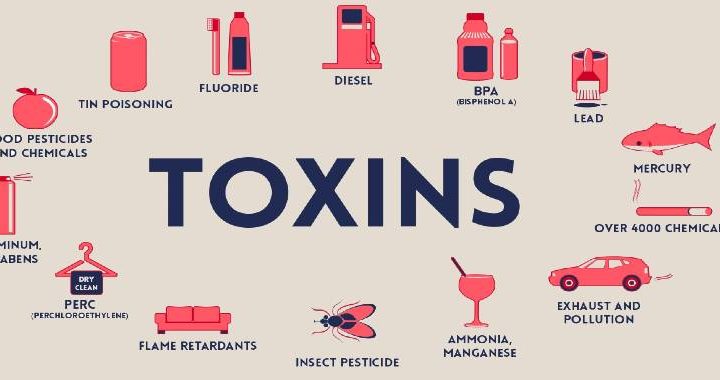merriam-webster: a poisonous substance that is a specific product of the metabolic activities of a living organism and is usually very unstable, notably toxic when introduced into the tissues, and typically capable of inducing antibody formation.
wikipedia: A toxin is a naturally occurring organic poison produced by metabolic activities of living cells or organisms.
No matter whether you've been in the healthy and green living space for quite some time or if you're brand new to the concepts we're discussing here, you've probably heard the term toxin thrown around quite a bit. You might have noticed the term tox is even in our name! So what exactly is a toxin?
Technically, a toxin only really includes naturally occurring poisons produced by living things. It's a subset of what are known as toxicants. Toxicants include these naturally occurring poisons but also include the man-made ones as well. But here's where it can get a bit more confusing. You see, venom is a toxin and thus also a toxicant. Some toxins are poison. But venom and poison are typically separated by the method of delivery.
For something to be considered venomous, the delivery method is through a fang or stinger using a process called envenomation. Poisons on the other hand are absorbed through the skin or ingested or inhaled. There's an old saying:
"If you bite it and you die, it's poisonous. If it bites you and you die, it's venomous."
While venoms are certainly not good for you, we're probably not going to spend too much time on our site covering subjects like how to keep venomous things out of your body. We'll leave that to the spider and snake and zoology experts out there. We're going to focus on the toxins and toxicants, although you'll probably find us just using the more generic term toxin most of the time. Just know that just because we're calling something a toxin doesn't necessarily mean it's naturally occurring or organically based. No matter what it's technically called, we still want to avoid these toxins and toxicants.
Toxins and toxicants are detrimental to human health and can cause all sorts of diseases and disorders including such things as thyroid disease and disrupting hormone production and the endocrine system. Their effects may not be immediately noticeable as some toxins take a while to build up before side effects start to arise. As you're reading through our site, I encourage you to keep in mind the old adage that has been attributed to Paracelsus:
"All things are poison, and nothing is without poison; the dosage alone makes it so a thing is not a poison." This is often condensed to: "The dose makes the poison" or in Latin, "Sola dosis facit venenum".
In other words, there are some things that can be harmless when consumed in small amounts while they are harmful when consumed in large quantities. As an example, did you know that water intoxication or water poisoning is possible when someone consumes too much water? I'm not talking about drowning here, I'm talking about actually drinking too much water on purpose. While it is rare and usually associated with things like water drinking contests or drinking too much water too frequently during long exercise routines, it is indeed possible.
Remember that just because something is natural, that doesn't make it non-toxic or safe.
Our goal at Zero Tox Life is to help you make smart decisions on what toxins negatively impact you the most and help you eliminate them from your life wherever possible. In the case that you believe we've gotten something wrong, please feel free to reach out and share with us! We're happy to share the resources we use in our research if we haven't already and we want to make sure we're finding the right answers so we're only sharing the truth with others as well!
We look forward to having you join us on our journey and living long and healthy lives together!

